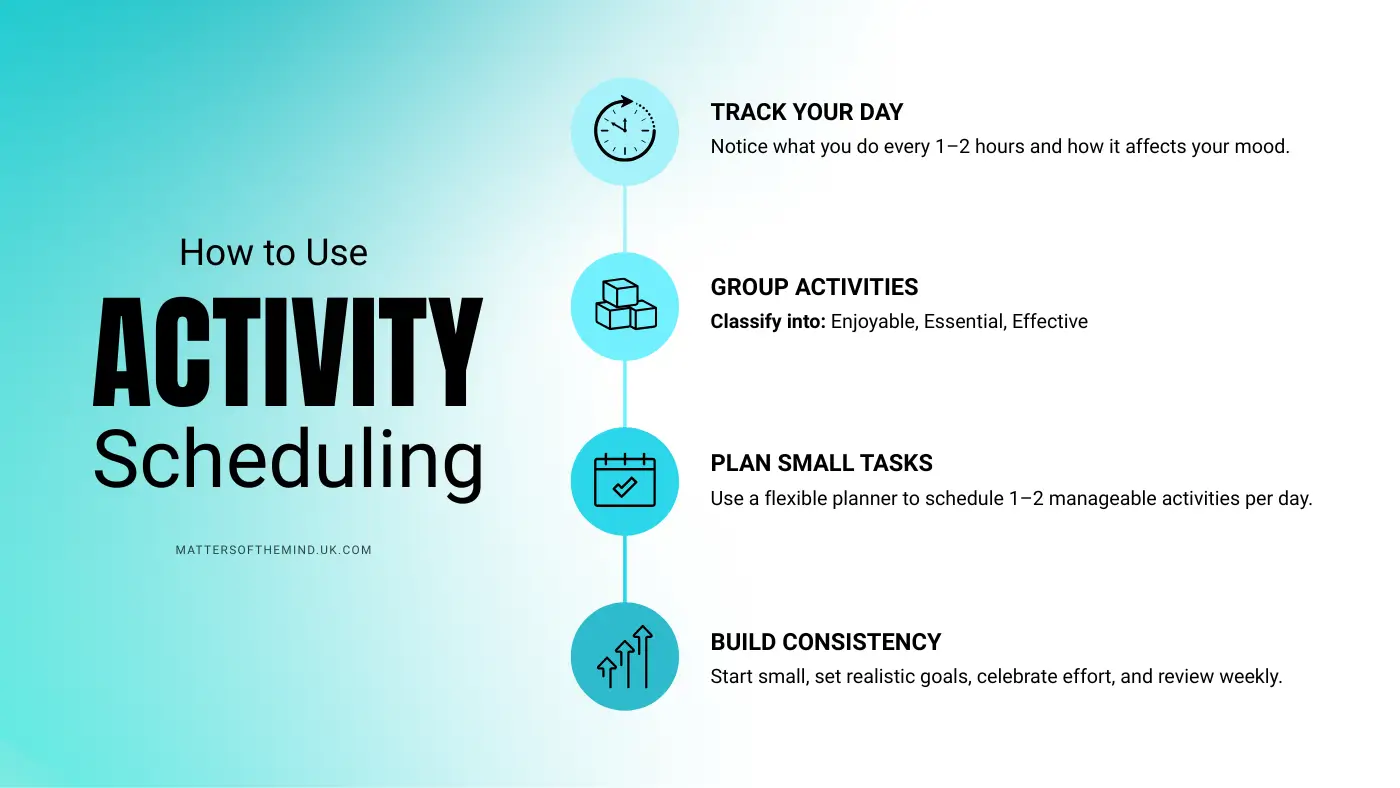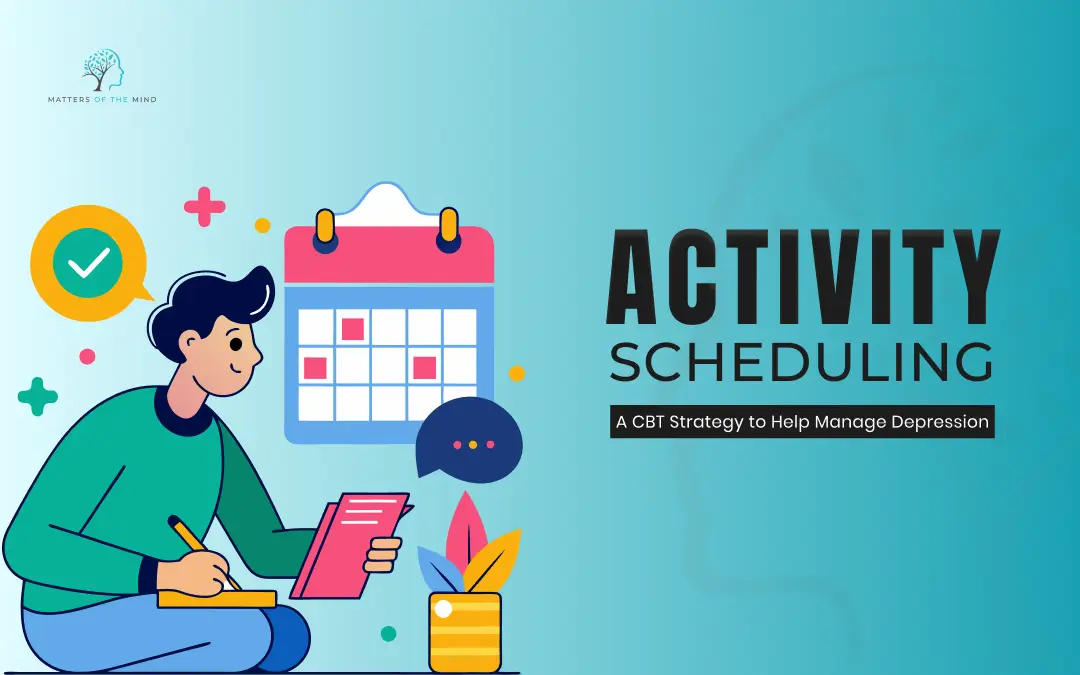Therefore, the right care and approach are crucial to handling depression. Activity scheduling is one such core technique from Cognitive Behavioural therapy that helps an individual to overcome anxiety and depression.
What is Activity Scheduling?
Activity scheduling is a structured approach to planning your day with purposeful, rewarding, or necessary activities. It’s not about filling your calendar with tasks or forcing happiness; rather, it’s about gently reintroducing routine, pleasure, and achievement into your daily life.
Why Activity Scheduling Helps with Depression?
Here are the reasons why activity scheduling helps manage and cure depression.
When an individual is stuck in depression, they engage in a vicious circle of endless and unnecessary thoughts.

- Encouraging structure and routine
- Reconnecting you with meaningful and enjoyable activities
- Offering small wins that improve mood and self-esteem
- Building momentum, even when motivation is low
How to Use Activity Scheduling

1. Track your day for a few days
2. List the right kind of activities
- Enjoyable: Things that bring joy and relaxation (eg, listening to music, painting, watching a show)
- Essential: Self-care or responsibilities that you can’t neglect (eg, cooking, laundry, brushing teeth)
- Effective: Activities that align with your goals or values (eg, job search, learning something new, therapy homework)
3. Planning
4. Set yourself up for success
- Start small: Choose tasks that take 5-15 minutes.
- Be realistic: Don’t aim for a perfect day. Aim for one or two things that feel manageable.
- Reward yourself: After completing a task, take a moment to acknowledge it. Appreciate yourself as you have done it, even if it felt hard.
- Review weekly: Look back and see which activities improve your mood. This can be your source of motivation to keep going.
What’s The Right Time to Seek Help
Activity scheduling can be a powerful self-help tool, especially when symptoms last for a longer period.
- Feel persistently low or hopeless for more than two weeks
- Struggle with daily functioning, including eating, sleeping, or basic tasks
- Experiencing overwhelming guilt, worthlessness, or self-doubt
- Withdraw completely from friends, family, or responsibilities
- Have thoughts of self-harm, suicide, or even occasionally
If you are in crisis or feel unsafe, please seek immediate help from a local emergency service or mental health expert, or helpline.
Final Thoughts
If you’re struggling with depression and are tired of trying multiple ways, the right guidance and support can help. Dr Kavita Deepak-Knights, Clinical Psychologist based in Windsor, Berkshire, offers compassionate, evidence-based therapy to help you take control of your mental health. With expertise in CBT and other proven approaches, she can guide you in treating depression, anxiety, and other conditions.
Book a personalised session today and take the first step towards feeling more like yourself again.


